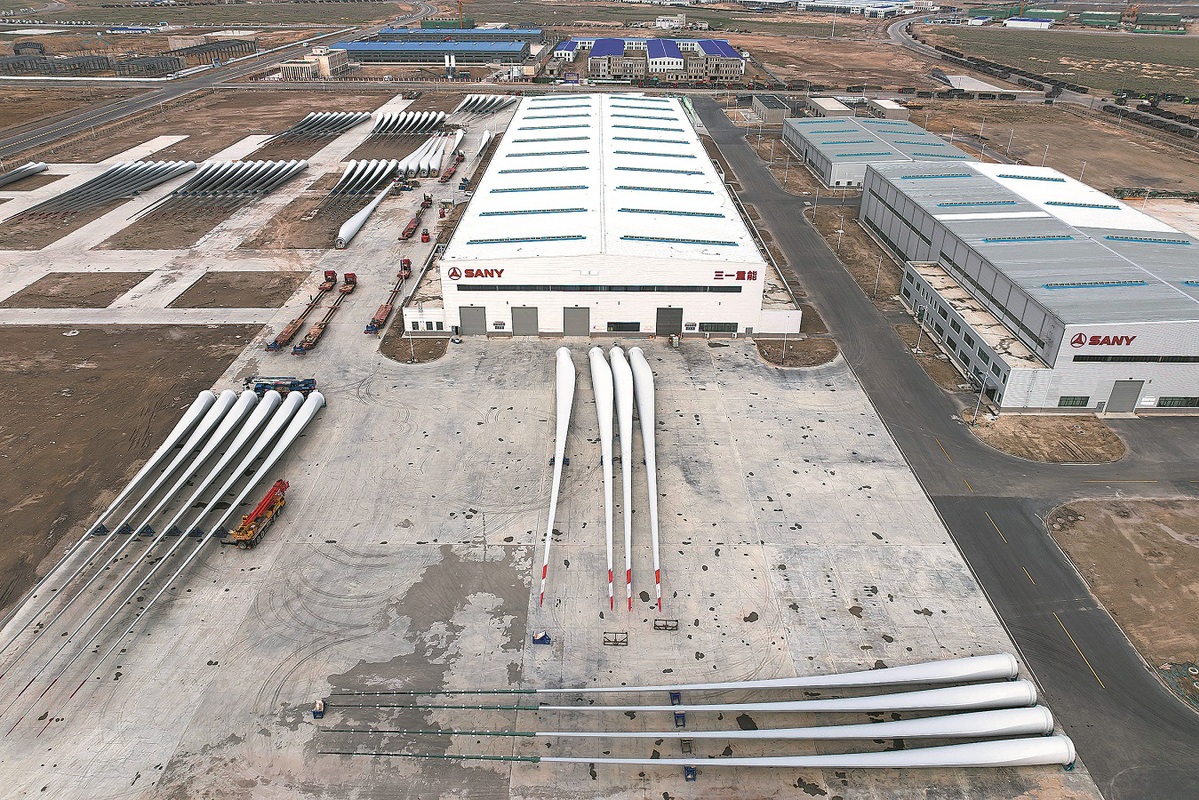Grasslands' wealth unlocked by push for high-quality products
Scientific approaches improve beef; goji berries and cotton raise villagers' livelihoods


Dual approach
In Jinghe county, about 100 kilometers east of Bole, cultivation of cotton and goji berries is bringing fresh vitality to villages long rooted in farming traditions.
This month, harvest season for the county's 73,000 hectares of cotton started, with 230 cotton pickers working in the fields to bring the fluffy bolls home before November.
In Shartur village, one of Jinghe's oldest cotton-growing areas with more than 40 years of cultivation, harvest time means fierce competition among buyers eager to secure high-quality cotton.
"Seed selection, field management, and scientific fertilization are key to better yields," said Ding Hongshan, a local farmer who manages more than 6.67 hectares of cotton. "Now, with guidance from experts and new equipment, it takes just 10 hours to harvest over 6.67 hectares," he said.
In 2025, the yield of his fields is expected to reach an above-average ratio of 7.5 metric tons per hectare, generating him annual net income of around 100,000 yuan.
Agricultural specialists from the prefecture regularly provide farmers with tailored advice, Ding said. With technical knowledge and mechanization applied in the fields, cotton has become a pillar crop, securing incomes and financial stability for villagers.

Apart from cotton, September also sees the harvesting of goji berries. Earlier this month, Dilnur, a farmer in Jinghe, filled her basket with the bright red berries.
In autumn, she picks around 20 kilograms a day earning her over 100 yuan. "In summer, the income can climb to 200 or 300 yuan a day," she said.
Beyond picking, she livestreams goji berry products on video platforms such as Douyin and Kuaishou, selling to buyers in southern Xinjiang.
According to the Jinghe Agriculture and Rural Affairs Bureau, 28.75 tons of fresh goji berries were sold last year fetching an average price of 126 yuan per kg, greatly increasing local farmers' incomes.
Du Yongjun, a villager in Jinghe, said growing both goji berries and cotton made it possible for him to raise two daughters and send them to university. Both have landed good jobs in cities in Xinjiang.
"I earned 20,000 yuan from growing goji berries and about four times more from cotton fields each year, which was enough to support two college students," Du said.
At present, more than 40 varieties of goji berry-based health and leisure products, including juice, tea, beer and noodles, have been developed in Jinghe. They are sold in domestic markets and overseas countries including Indonesia and Brazil, according to local authorities.
























